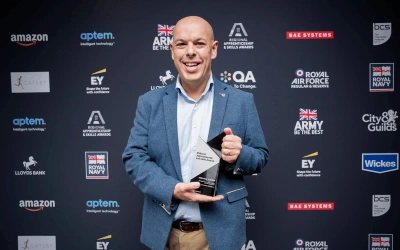Good hires aren’t always easy to come by. For that reason, many businesses use recruiters to find good hires – whether that’s for a single requirement or by fully outsourcing the process to a recruitment supplier.
It’s important to understand that recruitment is more than simply stumbling across a great candidate though. Good recruitment takes time – it requires market intelligence, expansive candidate networks and the skills and experience to unearth passive talent.
So, if you’re only using your recruiter to make transactional placements, you’re only accessing half their value. Here’s what you can do to maximise your money.
Competitor research
In a high-demand market like technology, no company can afford to operate in a bubble. Keeping abreast of competitor activity, vacancies, and benefits packages helps businesses to retain a competitive edge in the war for talent. Who else would have ready access to this sort of insight than a recruiter who is familiar with the market and its movements?
Recruiters regularly network with candidates from different companies, and so have an unrivalled understanding of different organisations – their plus points and their pitfalls. While recruiters can never reveal strictly confidential client information, they can give you some steer into what competitors are doing and how you can stand out from the crowd.
Market insight
Recruiters will naturally speak to candidates from different walks of like, so will quickly learn deeper industry trends. For example, they may learn which tech stacks are becoming more popular, changing priorities for candidates on the job hunt, and how external factors – such as IR35 – are impacting candidates.
This can help businesses to plan accordingly and explore shifts in the market. This insight also helps to identify how readily available candidates are in the market, and how attractive a client opportunity will be for them. Understanding where candidates are scarce, the reasons for this, and potential solutions will lead to better hires in shorter timeframes.
Holistic experience
Nowadays, most workforces are made up of multiple different worker types. Knowing when to use each model to get the best results, however, can be complicated. For example, when is it appropriate to deploy a Statement of Work model? Does this role require a consultant, or is it a longer-term, permanent position? Should you be upskilling your existing workforce or investing in early talent recruitment to futureproof your business?
While not all recruitment providers can address these questions, full recruitment life cycle providers like Lorien can. Accessing this expertise can help you to protect your business by thinking ahead and making more informed decisions.
Rethink candidate attraction
Recruiters attract candidates in lots of different ways beyond scanning job boards. How in-depth a job your recruiter does can depend on the level of detail provided. If you simply provide a job description with no additional detail, the match-up may be just as superficial. Instead, take the time to explain precisely what you’re looking for beyond skills and experience – the candidate’s personality, their motivations, how they will fit in with your culture, for example. Then discuss with your recruiter the best way to find the candidates that meet this description.
A recruiter can use their competitor research, market insight, and holistic expertise to give you guidance about the most effective approach to find this talent. Maybe, that’s expanding your brand presence through networking events to increase referral capability and widen the talent pool. Maybe, that’s improving candidate quality by using neuroscience-based assessments. Or maybe, that’s using different tools - such as artificial intelligence - to identify candidates that may not be visible on the open market. Candidate attraction can be as straightforward or as sophisticated as needed. But to get the most tailored approach, it’s best to be honest about what you’re looking for and where your priorities lie. Recruiters can do the rest.
If you prefer to keep your recruitment interactions straightforward – requirement, screen, interview, hire – there’s nothing wrong with that. Hiring managers are busy people and sometimes simply being able to hire a great candidate with no questions asked is the easiest way. However, it’s important to understand that if you use recruiters as simply middlemen, you could be missing out on game-changing information.
So, if you have the desire to plan ahead and make better long-term hiring decisions, turn the tables. Instead of giving out requirements, make requests. Dig a little deeper and ask your recruiters to give you valuable insight and advice on your processes and your position in the market. You can pay for a bum on a seat, or you can pay for expertise.
Learn more about Lorien’s recruitment solutions.







